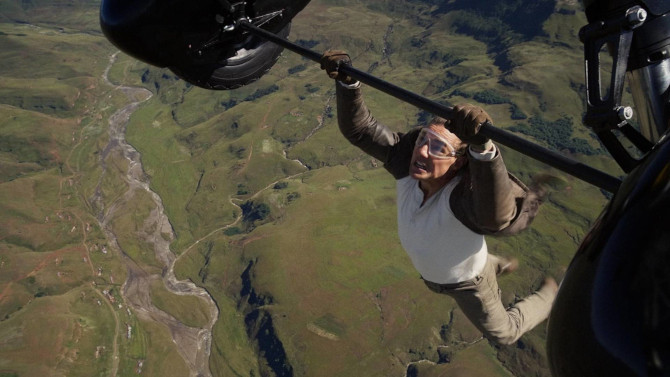
An Impossible Mission
How do you wrap up a franchise like Mission: Impossible? That is, if this even is the final installment... as they’ve made it sound (while at the same time, stars not named ‘Tom Cruise’ pipe up and suggest that might not be so). It has been twenty-nine years, with different writers and visionary directors – from twisty Brian De Palma and the action hair stylings of John Woo, to the lens flares of J.J. Abrams and animation expert Brad Bird, it was only about ten years ago that the franchise decided to opt for The Usual Suspects scribe Christopher McQuarrie for the final four. To return to that opening question once more, you could end with a Sopranos’ style cliffhanger, simply make another entertaining movie like the many before – like Everybody Loves Raymond did it with its final episode, or try to tie everything up in a neat little bow by bringing everything together as the Daniel Craig era did with James Bond. Well, it is definitely more along the lines of the latter example, with some distinct differences.
-
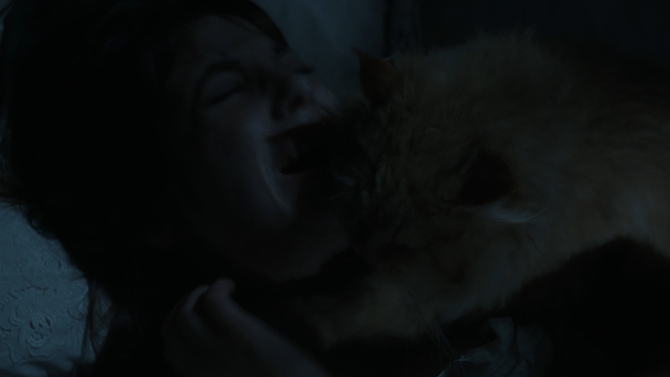
Cat Me If You Can
Seven Dead in the Cat's EyeAugust 11, 2020Expect some lowlifes in the highlands – after all, don’t they say, ‘expect less rather than moor, and you won’t be disappointed’; also, look for some individuals who put the clan in clandestine. Another warning, when dealing with crypts, loch it up and throw away the key. . . okay, enough with all of this wacky wordplay and welcome to one of those intriguing gialli that uproots from their native Italy to a foreign destination (if you haven’t yet guessed Scotland, my kilty pleasure of quirky puns was for naught); namely, Seven Deaths in the Cat’s Eye (1973). Directed by Antonio Margheriti (though you will see his English name, Anthony M. Dawson, in the credits), we are transported into the gothic world of the Scottish countryside alongside Corringa (Jane Birkin), a young woman that is part of the ancient family of MacGrieff – though MacGuffin might be a better name with all of the trickery found in the plot. Making the trip to her clan’s ancestral home (actually a gothic castle named Dragonstone), what she doesn’t know is that a murder has been committed in the cavernous basement of the abode (a location that would make Bruce Wayne jealous).
-
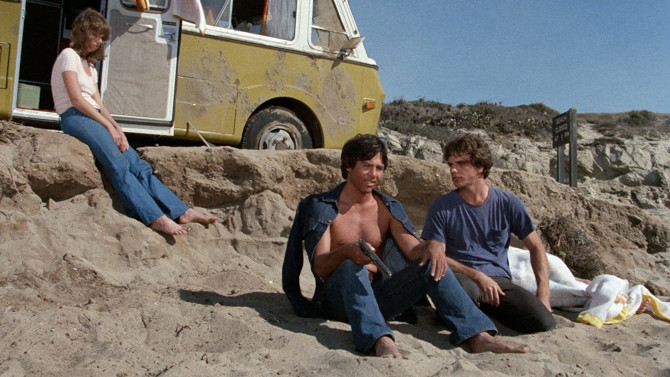
What Could Have Been: Best Friends
August 3, 2020A very Indie film that feeds off of both the buddy film craze of the time and the concluding notes of the Vietnam war, 1975's Best Friends, written by Arnold Somkin and directed by Noel Nosseck, is exactly as it sounds, that is, until it isn’t. Jesse (Richard Hatch) and Pat (Doug Chapin) have been best friends for years. Frick to the other’s Frack, they spend all of their time together. . . going as far as heading off to war when they are of age. Now returning from Vietnam, Jesse has set up a special surprise for his bestie – having both of their fiancées join them for an RV road trip all the way to California.
-
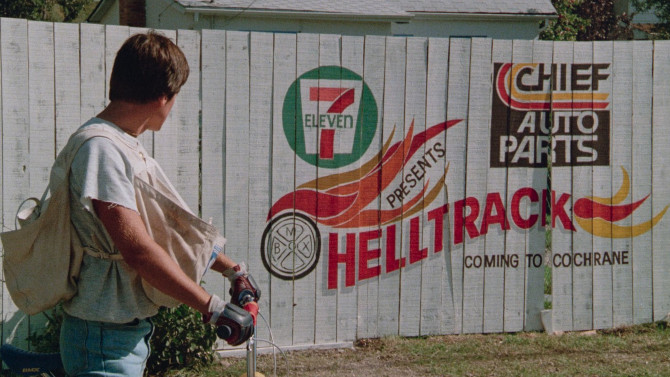
I Want To Ride My Bicycle…
RadJuly 31, 2020I’m still not exactly sure what I’m doing here, but here we go. . . 1986's Rad is one of the films that has the greatest discrepancies between critic and fan ratings – despised by the former, loved by the latter. An unknown to even the most fanatical of film fans, yet also a cult classic adored by its underground supporters, this motion picture, directed by stuntman nonpareil Hal Needham, is like a scientifically concocted adrenaline shot of cheese, kitsch, B movie badness, with a fantastical twist on the 80s. . . and, for some bizarre reason, I kind of liked it. Welcome to the town of Cochrane, a fictional place where the newspaper delivery boys are aided and cheered on by its local citizens (including the garbage men), where the cops love nothing more than playing a motorcycle versus bike version of hide and go seek against the kids in the local wood mill, where everyone’s favourite pastime is called ‘ass sliding’ – no, it’s not as dirty or fun as it sounds, where the dancing looks like a part of a Siegfried & Roy show (and that’s not to mention the sexualized bicycle tango), and each and every person (be it the Shriners on their little clown cars, or its aged population) seems to be absolutely enthralled by BMX biking.
-
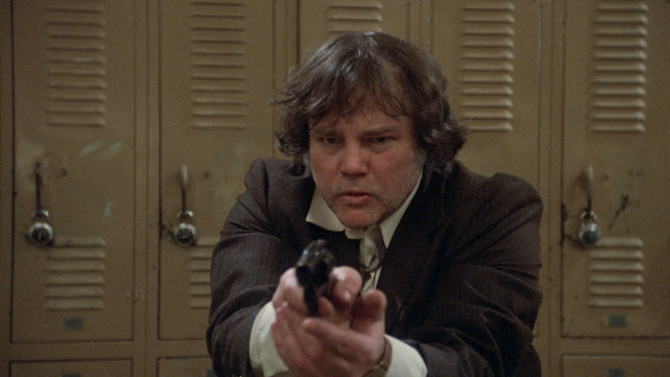
What Could Have Been: Wacko
July 27, 2020Eighteen years before Scary Movie ruthlessly parodied countless horror tropes (leading to four sequels that varied from hilarious to unwatchable), there was an original spoof film that prodded at the intricacies of the horror genre, 1982's Wacko, directed by Greydon Clark. In a way comparable to Mel Brooks’ High Anxiety (I know what you’re thinking – how?), Brooks and his team fell into the trap of spending more time trying to honour and satirize Alfred Hitchcock’s motion pictures instead of forming a workably entertaining story. Similarly, the most fun you’ll have watching this disjointed effort is looking for the references to other horror movies – and less so the product as a whole.
-
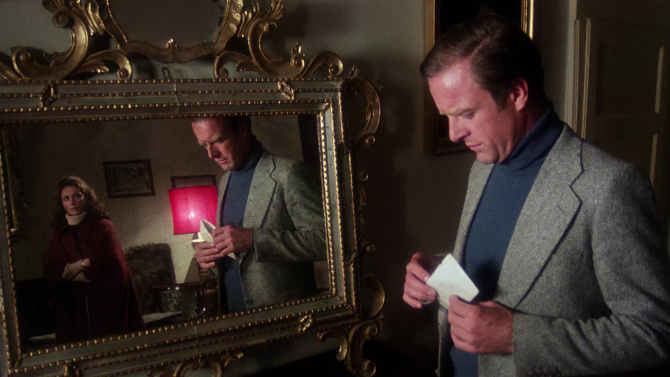
Giallo-Vision
The PsychicJuly 24, 2020A fascinating combination of Edgar Allan Poe’s “The Cask of Amontillado” and “The Tell-Tale Heart” infused with the daunting question of ‘can you change your own fate?’, Lucio Fulci’s The Psychic (1977) – at least in the US (in its native Italy: Seven Notes in Black. . . other title iterations include Murder to the Tune of the Seven Black Notes and Death Tolls Seven Times), is a parapsychology tinged giallo nonpareil. Virginia Ducci (Jennifer O’Neill) is haunted by the second sight. . . something she horrifically learned when she could sense her mother committing suicide when she was just a young girl. Having moved on from that traumatizing early childhood experience, the English woman has married a wealthy, frequently traveling Italian businessman, Francesco Ducci (Gianni Garko), moving from her native UK to picturesque Italy.
-
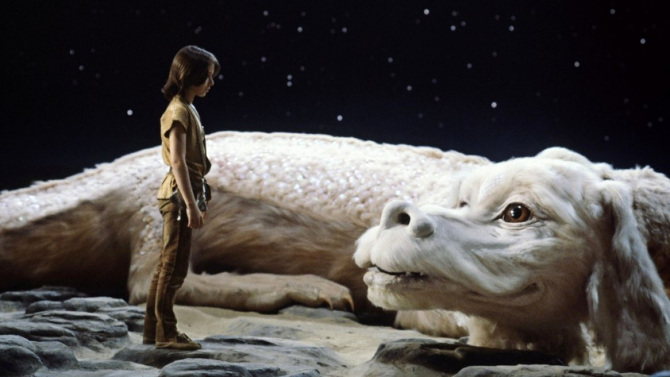
It Goes On and On My Friends…
The NeverEnding StoryJuly 22, 2020Oh, the 80's. . . a child’s mother dead, vicious bullies, a horse dying by way of depression in a boggy swamp, a killer wolf, a fantastical world coming to an end, heavy doses of existentialism – and that’s a children’s movie?! Of course, some of you might have guessed it by now, I’m talking about one of the most bizarre family films in the history of the silver screen, 1984's The NeverEnding Story. Co-written and directed by Wolfgang Petersen (in his first English language film – Air Force One, Troy and several others would follow), this German produced feature, based upon the 1979 novel of the same name written by Michael Ende, though successful in its original release, definitely falls within the cult classic moniker. With a 21st century lens, those who have not yet seen it will be shocked by just how dark and depressing it is for a so-called family film. . . but, like those original Grimm fairytales, just below its overtly bleak outlook, there are many more upbeat themes and life lessons to learn.
